Richard Nixon, 1960
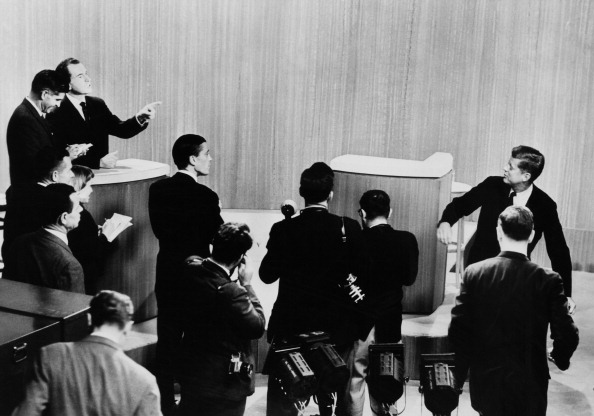
On the morning of Sept. 26, 1960, John F. Kennedy was a relatively unknown Senator from Massachusetts taking on the incumbent Vice President, Richard Nixon. By the end of the evening, he was a star. It seems Nixon’s fatal flub was in failing to recognize the power of the visual image. Pale and underweight from a recent hospitalization, Nixon appeared sickly and sweaty, while Kennedy appeared tanned, calm and confident; he even sent his aide back to his hotel to get him a blue shirt that would look better with the set. As the story goes, those who listened to the debate on the radio thought Nixon won. But those listeners were in the minority. By 1960, 88% of American households had televisions — up from just 11% a decade before. The number of viewers who tuned in to the debate was estimated to be as high as 74 million by Broadcast Magazine, the Nielsen of the day. Nixon performed much better in subsequent debates (and appeared better, thanks to the “milkshake diet” his aides put him on to fatten him up). But the damage had been done. Kennedy went on to narrowly win the election that most say he never would have had a shot at without that first debate.
Read More: How the Nixon-Kennedy Debate Changed the World
Gerald Ford, 1976
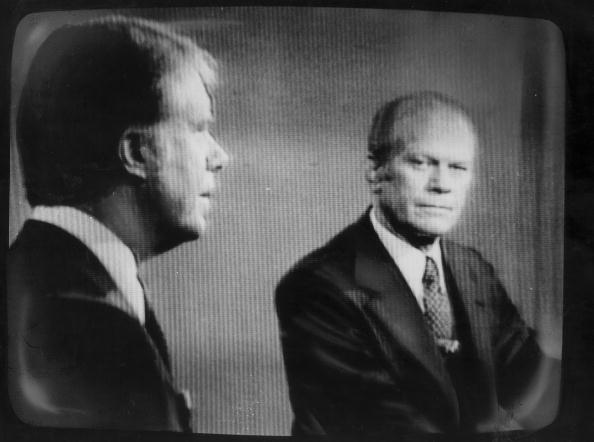
During a 1976 presidential debate against a then-obscure Georgia governor named Jimmy Carter, Gerald Ford famously uttered, “There is no Soviet domination of Eastern Europe.” The moderator, Max Frankel of the New York Times, responded incredulously, “I’m sorry, what? … Did I understand you to say, sir, that the Russians are not using Eastern Europe as their own sphere of influence in occupying most of the countries there and making sure with their troops that it’s a communist zone?” But Ford refused to back down from his original statement, insisting that Poland, Romania and Yugoslavia were free from Soviet interference. The answer haunted him for the remainder of the campaign and may have cost him the election. Somewhat ironically, Ford was the first candidate to agree to a televised debate since Richard Nixon’s disastrous appearance opposite John F. Kennedy in 1960.
Read More: 10 Things That Have Never Happened in a Campaign Before
George H.W. Bush, 1984
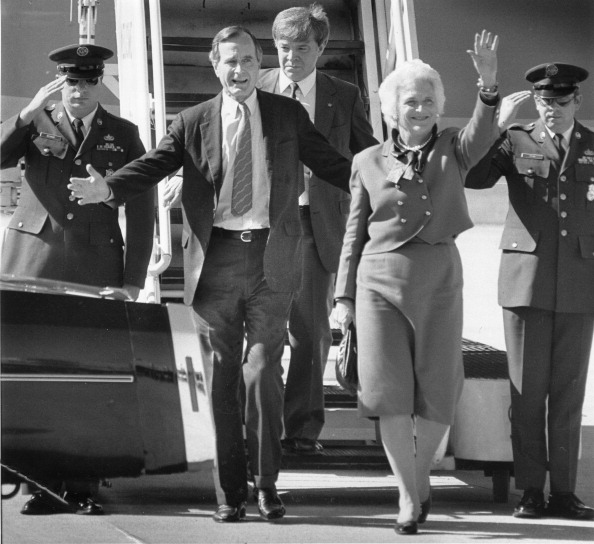
When then Vice President George H.W. Bush stepped up to debate opponent Geraldine Ferraro, he treated her exactly as she did not want to be treated. Appearing incredibly condescending toward the first female ever to run on a major-party ticket, Bush chose to “instruct” Ferraro on foreign policy, saying, “Let me help you with the difference, Ms. Ferraro, between Iran and the embassy in Lebanon.” Bush’s phrasing might have gone unnoticed, but his opponent quickly drew attention to the remark: “Let me just say, first of all, that I almost resent, Vice President Bush, your patronizing attitude that you have to teach me about foreign policy.”
Read More: See the Top 10 State of the Union Moments
Michael Dukakis, 1988
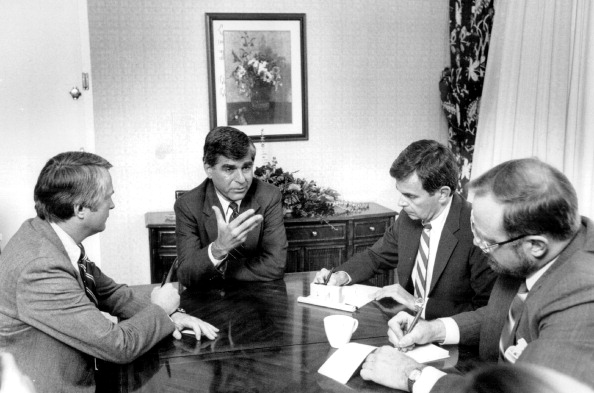
Massachusetts Governor Mike Dukakis didn’t exactly charm his way into voters’ hearts during the 1988 debates with his response to whether he would support the death penalty should his wife Kitty be raped and murdered. A longtime opponent of the death penalty, Dukakis responded to the startling question from CNN’s Bernard Shaw, “No, I don’t, Bernard, and I think you know that I’ve opposed the death penalty during all of my life. I don’t see any evidence that it’s a deterrent, and I think there are better and more effective ways to deal with violent crime.” While some criticized the fairness of the question, to viewers, the answer seemed both dispassionate and dismissive. Years later, Dukakis would recall his response, saying, “I have to tell you, and maybe I’m just still missing it … I didn’t think it was that bad.”
Admiral James Stockdale, 1992
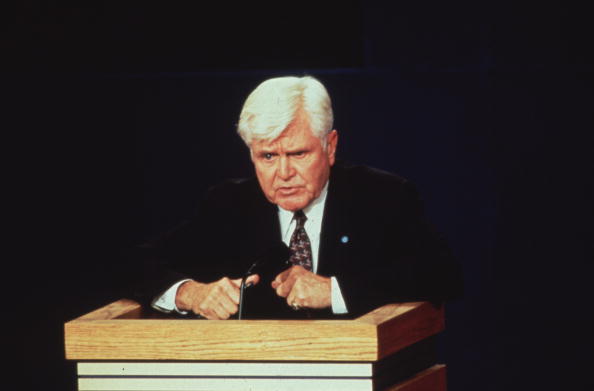
While Ross Perot amused crowds with his snarky comments, his running mate, Vietnam War hero Admiral James Stockdale, struggled to transform himself into a public figure. The famously self-deprecating Stockdale opened the vice-presidential debate in 1992 by asking, “Who am I? Why am I here?” The line, meant to poke fun at his lack of political experience, left viewers simply wondering whether he knew the answer to either question.
Al Gore, 2000
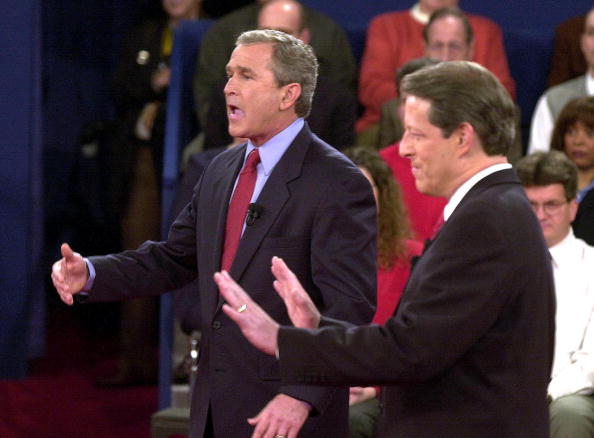
Sometimes a candidate says it worst when he says nothing at all. Al Gore’s endless sighing during a 2000 debate against George W. Bush sparked endless mockery, as did his decision to leave his lectern and approach within inches of Bush during a response. Four years later, debate organizers would amend the event’s rules to avoid such an episode, stipulating, “Each candidate may move about in a predesignated area.” But Gore is not the first candidate whose silence trumped his speech; in 1992, George H.W. Bush caught flak for checking his watch during a verbal spar with Bill Clinton and Ross Perot.
Hillary Clinton, 2008
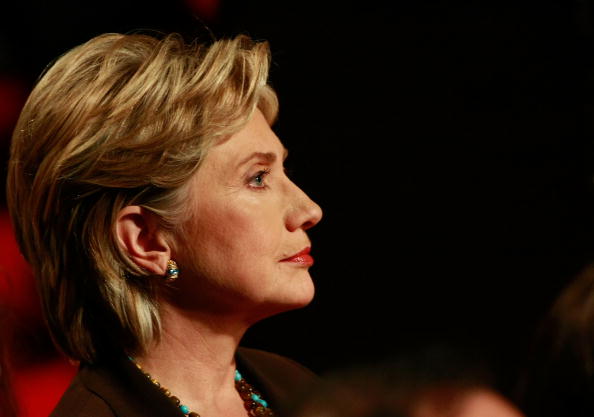
She seemed savvy enough on Russian politics. But in a Feb. 26, 2008, Democratic debate against Barack Obama, Hillary Clinton just could not get the future Russian President’s name right when asked by moderator Tim Russert. “Dmitri Medvedev” proved too difficult for Clinton to say; instead, she opted for “Medavedeva … whatever.”
Barack Obama, 2008
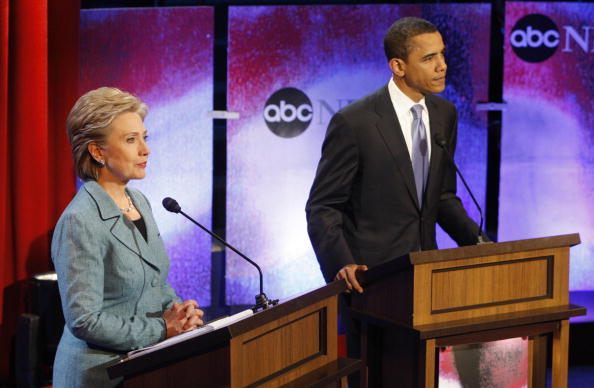
In a 2008 debate, presidential candidate Hillary Clinton joked that her feelings had been hurt by a report that she was not as likable as her opponent Barack Obama. She used the opportunity to praise Obama as “very likable.” He returned the favor — kind of — slyly admitting that Clinton was “likable enough.” Although his comment drew laughs from both the audience and Clinton, pundits later spun the moment as a show of condescension on the part of the future President.
Christine O’Donnell, 2010
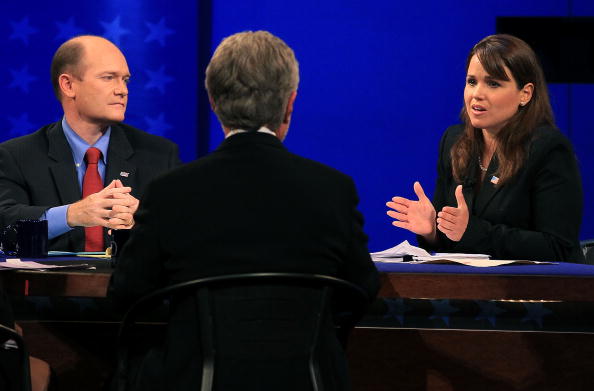
For all her talk about being a “constitutional conservative,” Delaware Republican Senate candidate Christine “I’m not a witch” O’Donnell seemed more than a little fuzzy on the First Amendment during an October 2010 debate with opponent Chris Coons. As the Democrat argued that public schools should teach only evolution, not creationism, O’Donnell lashed out against Coons for “how little” he knew about the Constitution. As the moderator tried to move on, O’Donnell circled back to the exchange and incredulously asked Coons, “You’re telling me that the separation of church and state is found in the First Amendment?” Coons responded with the relevant section of the Constitution while the crowd, mostly students and legal professionals from debate host Widener University Law School, broke into gasps and laughter.
Jan Brewer, 2010
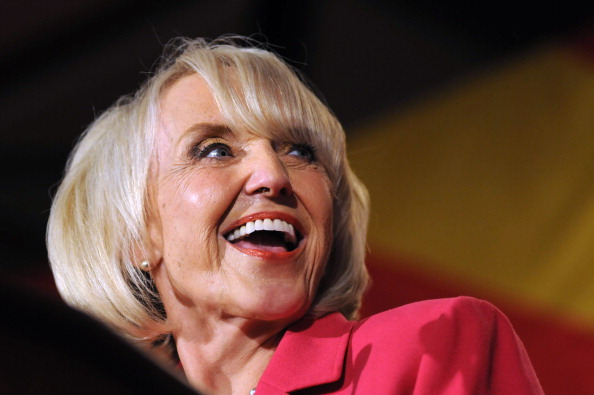
The opening statements of debates afford candidates the opportunity to deliver rehearsed introductions without the pressure of unexpected questions or interruptions. But during a Sept. 1, 2010, forum, Arizona Governor Jan Brewer, apparently struck by a debilitating bout of brain freeze, struggled to get through the most cursory of opening remarks. As she fumbled to explain what she had accomplished in office, Brewer lost her train of thought completely. After more than 10 excruciating seconds of silence, the governor managed to stammer, “We have did what was right for Arizona.” Despite her less than eloquent delivery, voters seemed to agree that she was right for Arizona — Brewer was re-elected by a wide margin.
More Must-Reads from TIME
- Donald Trump Is TIME's 2024 Person of the Year
- Why We Chose Trump as Person of the Year
- Is Intermittent Fasting Good or Bad for You?
- The 100 Must-Read Books of 2024
- The 20 Best Christmas TV Episodes
- Column: If Optimism Feels Ridiculous Now, Try Hope
- The Future of Climate Action Is Trade Policy
- Merle Bombardieri Is Helping People Make the Baby Decision
Contact us at letters@time.com